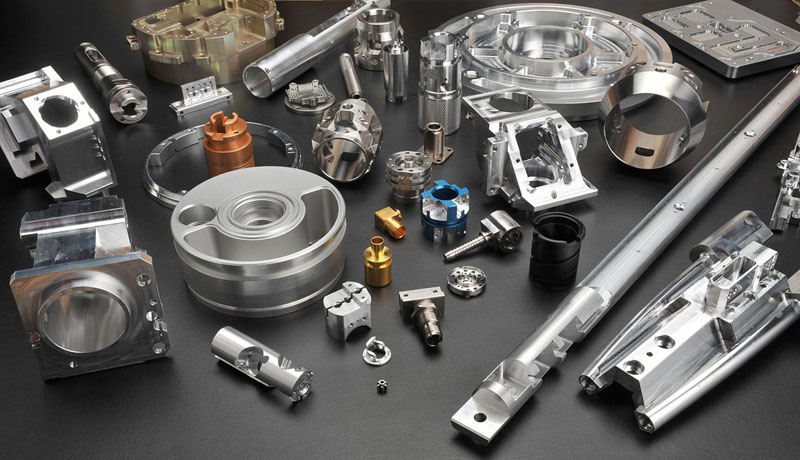In the field of CNC machining, the following will analyze how to select suitable materials from several aspects.
There are many materials suitable for CNC machining, and finding the right material for the product is constrained by various factors. Choosing the right material is crucial for the performance, accuracy, and durability of the part. Different environments and application scenarios require different types of materials. When selecting mechanical component materials, the following aspects can be considered.
Environmental Factor
For many manufacturers in the field of machining, this should be the absolutely most important requirement. These environmental factors depend on the purpose of the parts you are producing. These factors include cold or heat resistance, chemical resistance, UV resistance, flame retardancy, and so on. Another application is that your parts must be medical grade or food grade. All of these factors are very important, depending on the application of your parts. For example, components used in medical services must be able to withstand harsh chemical sterilization or high temperatures of autoclaves.
Mechanical Factors
For CNC machining, the strength of the materials used depends on the application. There are various forms of materials. For example, the parts required to form a specific application may need to be installed anywhere on a continuum from rigid to flexible. This consideration may involve considerations such as tensile strength, yield strength, comprehensive strength, or the fact that the material must be able to withstand impact. This is related to the application of such a part.
Physical Property
The physical properties such as density, hardness, strength, and rigidity of materials directly affect the performance of parts. For example, parts that require high strength may choose to use high-strength steel materials, while parts that require lightweight may consider using aluminum alloys.
Application Factors
Another important factor to consider when selecting part materials is the end use of the part. For example, steel and stainless steel are very suitable for CNC machining, but in other aspects, stainless steel is more corrosion-resistant than steel. The wrong choice in this situation may have a negative impact on the service life of your parts. Considering this, another factor to keep in mind is the FAA, FDA, and industry specific regulations.

Processing Performance:
The processing performance of materials can affect the manufacturing process and accuracy of parts. Some materials may be easier to cut, while others may require more specialized processing methods. Materials with higher hardness may require more wear-resistant tools.
Electrical Factors
This is also another application factor. The components may need to be insulators, conductors, or dissipating static electricity. In fact, the choice of materials will depend on this. And this choice is very important, so that the project goals at hand will not be abandoned.
Thermal Conductivity:
In some applications that require heat dissipation or conduction, thermal conductivity becomes an important consideration. Copper and its alloys typically have good thermal conductivity and are suitable for use in parts with high thermal conductivity requirements.
Weight Coefficient
The weight of such materials is crucial before selecting materials for the project at hand. For example, parts used in automobiles and aerospace must be light enough. Interestingly, CNC machining spaces provide a variety of materials compatible with these applications. Another consideration here is that manufacturers can decide to reduce weight by considering plastics such as ABS, especially when they can sacrifice strength.
Budget Factors
In some cases, material cost mainly affects the selection of materials. The goal of each manufacturer is to select materials that can minimize expenses while maximizing the required material characteristics and performance. Material cost is very important in CNC machining projects. This is because the process generates a large amount of waste. For example, some materials called special metals are very expensive and may have a significant impact on the cost of the materials used. Therefore, manufacturers need to carefully evaluate their budget before deciding on CNC processing materials for their projects.
Summary:
In the field of CNC machining, the importance of material selection cannot be ignored. With the continuous progress of technology and the diversification of industrial demand, the characteristics and applicability of materials have become more diverse. According to specific applications and requirements, selecting appropriate materials can optimize the performance and reliability of parts.
In addition to the aforementioned factors, the fatigue resistance and magnetism of the material should also be considered, as well as factors such as chemical media and radiation that may exist in the environment. At the same time, close cooperation with engineers, designers, and material professionals is required. The material selection of CNC machining parts is a complex process that requires finding the optimal balance point among multiple factors. With the continuous evolution of technology, more innovative materials will emerge in the future, which will bring more possibilities to various industries. At the same time, constantly updated knowledge and practice are also needed to adapt to the challenges brought by the constantly changing material requirements.



